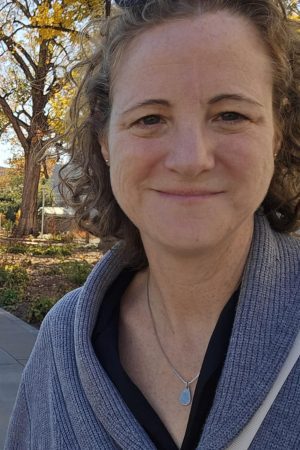Emily G. Makaš

Dr. Emily G. Makaš
Faculty Research Connections Profile
Emily Makaš has a Ph.D. in the History of Architecture and Urbanism from Cornell University (2007), a Masters in Historic Preservation from Columbia University (1997), and a Bachelor’s in History from the University of Tennessee (1995).
Research
Makaš’s research focuses on connections between memory and identity and the built environment. She is interested in architecture, urbanism, heritage, commemoration, and politics. Most of her career has focused on Southeastern Europe and her recent work explores relationships between public history and urban and national identities in Sarajevo and Mostar from the late 19th century to the present. Current projects include:
- a monograph on commemoration, heritage reconstruction, and public space in Bosnia-Hercegovina titled Urban and National Identities and the Rebuilding of Mostar (forthcoming from Routledge)
- a book chapter on the memory of the poet Aleksa Šantić in Mostar
- a book chapter on the pavilion of Bosnia-Hercegovina at the 1900 World’s Exposition in Paris
- an edited volume Planning Eastern European Capital Cities, 1945-1989 (forthcoming from Routledge)
She has also turned closer to home and is leading teams of faculty and students on public history and heritage project exploring identity in Charlotte and its region. Recent exhibitions that have resulted from that work include:
- “The Freelon Group: Designs for Historically Black Colleges and Universities,” Florida A&M University, Tallahassee, FL, Spring 2023
- “Container/Contained: Phil Freelon: Design Strategies for Telling African American Stories,” Harvey B. Gantt Center for African-American Art and Culture, Charlotte, NC, Fall 2021 + North Carolina Museum of Art, Raleigh, NC, Spring 2022
- “Legacy of Lynching”, Levine Museum of the New South, Charlotte, NC
- “Charlotte Strong: Tragedy and Response,” Art Gallery, Popp Martin Student Union, University of North Carolina at Charlotte, Charlotte, NC
- “The Legacy of Lynching: Confronting Racial Terror in America” / “It Happened Here,” Levine Museum of the New South, Charlotte, NC, 2019-2022
Teaching
Makaš’s teaching relates to her research interests and includes upper-level history seminars on topics on Museums, Adaptive Reuse, Capital Cities, and Architecture and Identity. She has also taught Historiographic Methods, Graduate Research and Design Methods, and Reading, Writing, Thinking Architecture. She advises students in the Minor in Architectural History and Criticism and proposed MS in Architecture Critical Heritage Studies concentration. Makaš has co-led study abroad programs to Berlin (Spring 2010, Summer 2018) and Central European Capital Cities (Summer 2012).
Key publications
- “Heritage Reconstruction in Mostar: Memories and Identities in Post-Conflict Bosnia-Hercegovina,” In Transforming National Heritages in the former Yugoslavia: Synchronous Pasts, ed. by G. Badescu, B. Baille, F. Mazzucchelli, an. London: Palgrave MacMillan.
- “Rebuilding Mostar: International and Local Visions of a Contested City and its Heritage.” In On Location: Heritage Cities and Sites, edited by D.F. Ruggles. New York: Springer, 2021.
- Architectural Conservation in Europe and the Americas (Wiley, 2011, co-authored with J.H. Stubbs)
- “Shaping Central and Southeastern European Capital Cities in the Age of Nationalism,” with T.D. Conley. In Capital Cites in the Aftermath of Empires, edited by E.G. Makaš and T.D. Conley. London: Routledge, 2010.
- “Sarajevo.” In Capital Cites in the Aftermath of Empires, by E.G. Makaš and T.D. Conley. London: Routledge, 2010
- Capital Cities in the Aftermath of Empires: Planning in Central and Southeastern Europe (Routledge, 2010, co-edited with T.D. Conley)
- “Interpreting Multivalent Sites: New Meanings of Mostar’s Old Bridge,” Centropa 5:1 (January 2005) special issue “Methodology and Theory in Central European Art and Architecture,” guest edited by Christopher Long